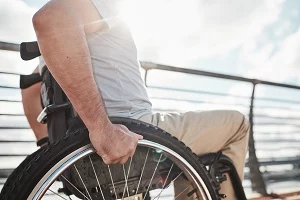Personal injury encompasses a wide variety of injuries and illnesses caused by someone else’s negligence. Everything from food poisoning to dog bites can be considered a personal injury if someone else was responsible for the harm caused to another person. However, there are some types of personal injury that cause much more devastating and long-lasting damage than others. Among the worst types of personal injuries, excluding wrongful death, are traumatic brain injuries (TBIs) and spinal cord injuries (SCIs).
TBI and SCI: Causes
Most traumatic brain injuries or spinal cord injuries occur in one of a few types of accidents:
- Vehicle accidents. The leading cause of spinal cord injuries is vehicular accidents. In particular, accidents involving multiple vehicles, motorcycles, and large trucks are more likely to lead to serious spinal cord injuries. Vehicle crashes also cause a significant number of traumatic brain injuries. Vehicle accidents are not limited only to passenger vehicles; many TBIs and SCIs involve all-terrain vehicles, dirt bikes or snowmobiles, as well.
- The leading cause of traumatic brain injury is falling, especially from a significant height. TBIs often result from falls from ladders, down flights of stairs, or from one level to another. In fact, about half of all emergency-room traumatic brain injury cases involve falls. Falling is also a significant contributor to spinal cord injuries, accounting for about a third of all SCIs.
- Both TBIs and SCIs are common results of violent interactions, such as being injured during a fight or the commission of a crime. Innocent victims may suffer serious harm through no fault of their own when visiting a store or other public area that fails to provide adequate security.
TBI and SCI: Lifelong Trauma
In many cases, TBIs and SCIs can cause lifelong trauma for the victims. Many symptoms of both TBI and SCI are permanent, including:
- Decreased motor function. One of the most visible results of a TBI or SCI is reduced motor function. Victims may be unable to walk, talk or hold objects as they did previously. This obviously has a powerful impact on their quality of life and ability to care for themselves.
- Decreased cognitive ability. Along with decreased physical ability, a decrease in cognitive function is very common after a TBI or SCI. Victims may be unable to process information as they did previously, which can lead to job loss and other issues. Some victims also suffer from changes in personality that affect their relationships with those closest to them.
- Decreased earning potential. Ultimately, victims of TBI and SCI may find that they can no longer support themselves and their families as they did previously. This lifelong loss of earnings can have long-term implications not only for the victim but for his or her loved ones as well.
At Barber & Associates, we believe that every TBI and SCI victim deserves to have his or her interests represented and to recover compensation for injuries. We work hard to ensure that our clients recover the maximum amount possible to pay for medical bills, lifestyle changes, and pain and suffering. Give us a call today to find out how we can help you with your traumatic brain injury or spinal cord injury case.
